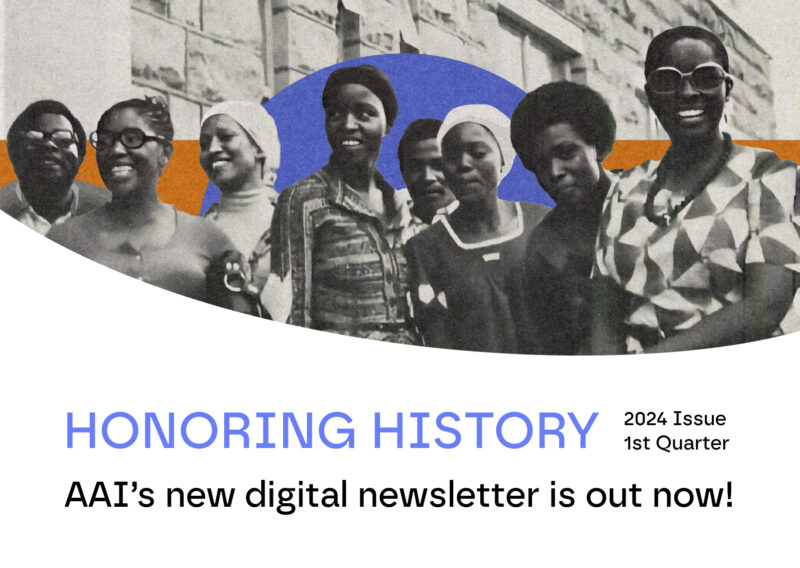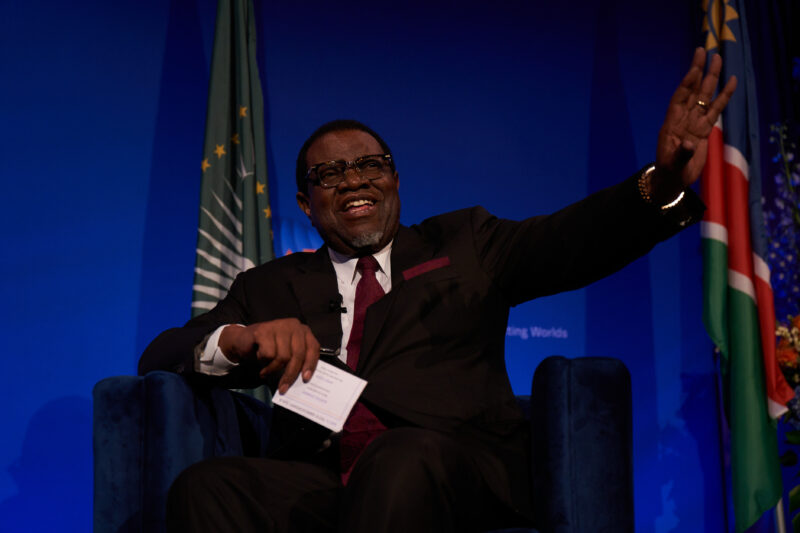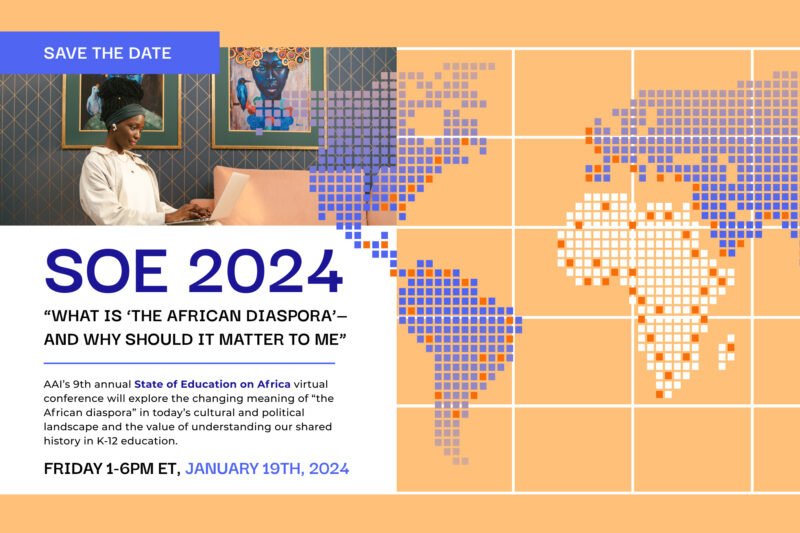Washington Wire: Fall 2014
News from AAI’s Washington, DC Office
By Austin Cooper
“I do not see the countries and peoples of Africa as a world apart. I see Africa as a fundamental part of our interconnected world – partners with America on behalf of the future we want for all of our children. That partnership must be grounded in mutual responsibility and mutual respect.” President Barack Obama, August 2014.
Last August, the U.S. President Barack Obama welcomed leaders from across the African continent to Washington for a three-day U.S.-Africa Leaders Summit, the first such event of its kind. Amini Kajunju, President and CEO of AAI, along with several staff members, participated in official and unofficial Summit activities during the August 4-6 meeting. The theme of the Summit was “Investing in the Next Generation.” Focusing on the next generation is at the core of the Administration’s responsibility and work, and this Summit provided an opportunity to discuss ways of stimulating growth, unlocking opportunities, and creating an enabling environment for the next generation.
On Friday, September 26, Ranking Member of the House Subcommittee on Africa, Global Health and Human Rights, Representative Karen Bass, hosted a comprehensive forum “The Historic U.S. Africa Summit: A Look Back” during the annual Congressional Black Caucus Legislative Weekend. The 2014 Africa Braintrust featured a distinguished keynote address, a cultural presentation and panels with policymakers, academics, advocates and industry experts.
Finally, here in the United States, the current Ebola crisis has garnered the attention of not only the White House, but the U.S. Congress and general public as well. This year marks the largest and most widespread outbreak of the disease in history and has placed an unprecedented strain on public and private sector resources in Africa, and particularly in the countries of Liberia, Sierra Leona and Guinea. Of particular concern to AAI is the impact of Ebola on efforts to strengthen human capacity in West Africa. More specifically its impact on not only the economies of Africa, but the global economy as well.
According to a recent article in the New York Times, the most authoritative business model of the World Bank – at the moment – suggests a potential economic drain of as much as $32.6 billion by the end of 2015 if “the epidemic spreads into neighboring countries” beyond Liberia, Guinea and Sierra Leone. Indeed, Ebola was the focus of numerous discussions at the highest levels during the recent annual meeting of the International Monetary Fund (IMF) and the World Bank.
AAI agrees with IMF Managing Director Christine Largarde, who during the annual meeting wore a button that read: “Isolate Ebola, Not Countries.” She went on to implore those in attendance that: “We should be very careful not to terrify the planet in respect to the whole of Africa.”
Stay in touch! In Washington, I can be reached at (202) 550-1149 or email, austinrcooper@gmail.com.
Austin R. Cooper, Jr. is AAI’s Government Affairs Representative.



